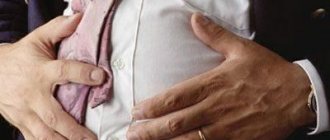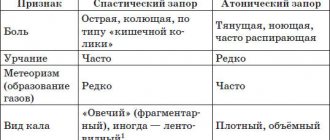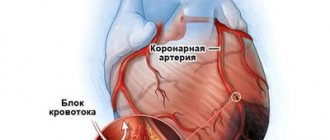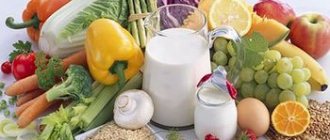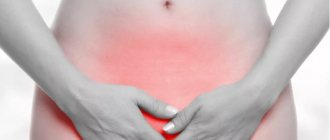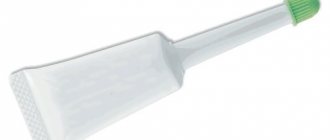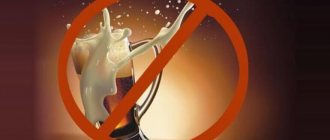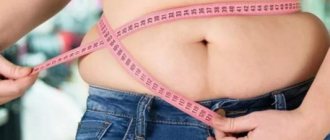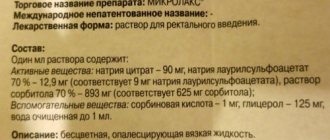Pain during bowel movements
often causes the formation of acute hemorrhoids. The pain may be acute. Feelings of fullness can also occur in case of strangulation of the hemorrhoidal node of the anus; the pain is especially noticeable while walking. If you do not begin timely treatment of the disease, pain may become more frequent, as any advanced disease progresses over time.
Pain during bowel movements
may appear in the presence of an acute anal fissure. At first, pain may occur when a dense mass of feces is passed or during diarrhea. In some cases, a burning sensation may occur. Pain may occur several hours after bowel movement.
Constipation due to lack of water
Nutrients from the bolus are absorbed in the small intestine, and undigested particles move further into the large intestine. This is where feces are formed. Water is also absorbed there - and the consistency of stool depends on its amount.
With a lack of water, typical symptoms of constipation appear: stool becomes hard, dense and lumpy, and moves through the intestines with difficulty.
If a person systematically does not drink enough water, he develops chronic constipation.
The recommended water consumption is about two liters per day. If you don’t want to drink glasses of plain water at all, soups, boiled or steamed food, fruits and fresh vegetable dishes will help you “get to the norm”. If you have problems with stool, it is better to avoid fried, dried, smoked foods and dry snacks - such food is likely to worsen the situation.
Constipation due to lack of fiber
Just drinking water is only half the battle when fighting constipation. It is fiber that retains water in the stool due to swelling, helping its movement. Fiber can be soluble or insoluble, and it is advisable to consume both types of fiber daily.
The recommended fiber intake for an adult is about 30 grams per day. That's at least one fruit a day and one generous serving of vegetables. Mucus-forming products with soluble fiber - flaxseed porridge, psyllium husk - will also help greatly.
What foods contain fiber?
If you have constipation, you don’t have to rely on tasteless bran or unloved vegetables. You can add healthy fiber to your diet using a variety of foods and dishes:
- berries;
- mushrooms;
- leafy greens;
- sprouts of legumes and grains;
- seeds;
- dried and pickled seaweed;
- whole wheat bread;
- Brown rice;
- whole grain spaghetti;
- whole grain bread;
- smoothie;
- whole grain porridge;
- dried fruits without added sugar.
Fiber not only helps you go to the toilet regularly, but also feeds your intestinal microbiota. To maintain a healthy diversity of microflora, you need to consume a variety of types of dietary fiber.
Development of the disease
Defecation, in other words, is the discharge of feces from the intestines through the anus. For any person, the norm for defecation in one day is one bowel movement. Most people have bowel movements in the morning. It is not normal to have frequent bowel movements, more than 3 times a day; usually this results in diarrhea. If you go to the toilet once every few days (this is constipation).
Pain and bleeding can be a consequence of certain pathological diseases:
- Hemorrhoid disease. The fact is that hemorrhoids can cause pain due to inflammation of the veins located inside and outside the anus. A nagging pain is felt with possible bleeding, which results in prolonged pressure on the intestinal walls. Pain may continue for some time after bowel movement. Bloody discharge of scarlet color, without any impurities.
- Anal fissures, abscesses. A chronic fissure in the anal part of the body can develop as a result of an advanced acute form of the disease. As the disease progresses, the pain becomes less intense, but a feeling of itching and phlegm appears in the anal area. Bloody discharge may occur. Acute pain may be accompanied by submucosal abscess and paraproctitis. The first of them is localized on the wall of the rectum. Paraproctitis is a purulent inflammatory process that occurs in the subcutaneous tissue.
- Acute pain may occur during or after bowel movements and lasts about 20 minutes. The discharge is not abundant and disappears quickly.
- Stomach upset.
- Formation of a malignant tumor. Polyps. They can cause intestinal blockage or block the anus. Painful sensations of a pulsating nature appear, intensifying during defecation. Often there is unpleasant pain or a feeling of heaviness in the groin area.
- Paraproctitis. In addition to pain that occurs during bowel movements and bleeding, this disease is accompanied by high fever, chills and deterioration in overall health. There is a possibility of swelling in the legs, which will grow with each passing day.
- Constipation.
Bloating and constipation
A constant excess of gases in the intestines can cause spastic constipation. Accumulated gases prevent feces from moving through the tract. They cause pain and discomfort, cause spasms, because the intestinal loops are compressed and squeezed.
Bloating after eating: what is the reason and what to do?
A common cause of bloating is dysbacteriosis, in which pathogenic microflora takes precedence over beneficial ones.
The Atlas microbiota test will help you find out the ratio of probiotic and other beneficial bacteria and assess the diversity of the microbiota. By examining your bacteria, it is much easier to understand how to cope with bloating and constipation and what the microbiota is missing.
Treatment of the disease
First of all, you need to get tested and confirm the diagnosis of the disease, because the symptoms of the disease can coincide in several ailments. In the absence of pathology, treatment can be carried out at home. A proctologist can give a full consultation on this matter.
.
It is important to know that after each bowel movement, using boiled water and excluding soap, you need to wash the anal area. If there are cracks, you need to lubricate the anal area with sea buckthorn or calendula oil. When hemorrhoids form, you should use certain suppositories, apply ice compresses, and apply peeled potato slices to the nodes. For constipation, it is recommended to drink more water and eat vegetables. If severe and acute pain occurs, you can arrange a call to the proctologist at home
.
This article is posted for educational purposes only and does not constitute scientific material or professional medical advice.
Useful information on the topic:
- Pain and blood during bowel movements
- Pain during bowel movements in children
- Diagnosis of pain during defecation
- Treatment of pain in the coccyx
- Treatment of pain during bowel movements
- Causes of pain during bowel movements
Hormonal problems and constipation
Thyroid hormones regulate essential body functions, including metabolism and digestion. Hypothyroidism, a disorder in the production of thyroxine, can cause chronic constipation and other digestive disorders.
Symptoms of hypothyroidism are very nonspecific, so you need to get tested to check your thyroid hormones. When their levels are low, a person may also experience chronic fatigue, excessive sweating, muscle weakness, weight fluctuations, or irregular heart rhythms.
External factors and spastic constipation
The gut-brain axis is a two-way connection that exists between the gastrointestinal tract and the brain. Fear or even pleasant excitement is stress for the body, which provokes the “fight, flight or freeze” response. So before an important event, such as a flight or interview, it can be difficult to go to the toilet.
How microbiota fights stress and depression
Stress can slow down peristalsis and cause spastic constipation, accompanied by acute colic.
Therefore, before traveling or an important meeting, it is better to have dinner with something easily digestible and not causing heaviness and turmoil in the stomach. A warm bath or shower, taking antispasmodics, a hot drink, meditation and massage will help you relax.
Taking medications and dietary supplements as a cause of constipation
Constipation is listed as a side effect on hundreds of different medications. If you've improved your diet but still suffer from chronic constipation, check to see if you're taking any medications or supplements that could trigger it.
These drugs and supplements may slow down peristalsis and interfere with bowel regularity:
- antidepressants;
- antipsychotics;
- iron-containing;
- sedatives;
- diuretics;
- aluminum-containing;
- anti-inflammatory.
This does not mean that you need to stop taking medications or supplements on your own if your bowel movements are abnormal. Try drinking more fluids and fiber and eating regularly. If this does not help, contact your doctor and ask him to find an alternative with less severe side effects or a gentle laxative.
Causes of constipation
This video explains why you may have trouble having a bowel movement (pooping), which is called constipation, what you can do to prevent it, and when you should call your healthcare provider.
Video Details
Constipation can be caused by a variety of reasons, including:
- Certain medications, such as: pain medications;
- chemotherapy;
- antiemetics (anti-nausea medications);
- antidepressants (medicines that help cope with depression);
- anticonvulsants (medicines to prevent seizures);
- medications to normalize blood pressure;
- antihistamines (allergy medications);
- antacids, such as Tums® or Rolaids®;
- dietary supplements (vitamins), such as iron and calcium.
- diabetes;
- ignoring the urge to have a bowel movement;
to come back to the beginning
Sedentary lifestyle and atonic constipation
Atonic constipation often occurs in old age, when body functions gradually slow down. But young people can also suffer from constipation, caused not by hypertension or spasms, but by a simple lack of movement.
When playing sports or simply leading an active lifestyle, blood circulates more intensely throughout the body, and metabolic processes accelerate. Biking, walking and running will help with this. Also, in the fight against constipation, it is better to pay attention to activities in which you can move in a variety of ways and engage your abdominal muscles. This could be dancing, swimming, yoga, gymnastics.
Pain in pregnant women
The lower abdomen may hurt during pregnancy for physiological and pathological reasons. Why does my lower abdomen hurt after defecation? First, let's talk about provoking factors related to physiology:
- hormonal changes. Progesterone is a hormone responsible for the normal course of pregnancy, causing increased blood circulation in the genitals and the proliferation of blood vessels. This can cause aching or throbbing pain. Such painful outbreaks may occur periodically;
- intensive growth of the uterus leads to tension of the uterine ligaments. Typically, women are bothered by nagging and stabbing pains, which intensify with physical exertion or a sudden change of position;
- moving the child can cause shooting pains, which are accompanied by the appearance of a small and large urge to go to the toilet;
- training contractions before childbirth, which begin after the thirtieth week of pregnancy. In this case, the pain goes away and then appears again.
However, in some cases, pain in the intestines can be a dangerous symptom that requires immediate help. Let's consider the causes of pathological pain:
- ectopic pregnancy;
- threat of miscarriage;
- premature placental abruption;
- intoxication;
- acute appendicitis;
- acute gastritis – inflammation of the stomach;
- irritable bowel syndrome;
- cholecystitis;
- acute pancreatitis;
- diseases of the urinary system, in particular cystitis.
During pregnancy, pain after going to the toilet may occur due to hormonal changes.
